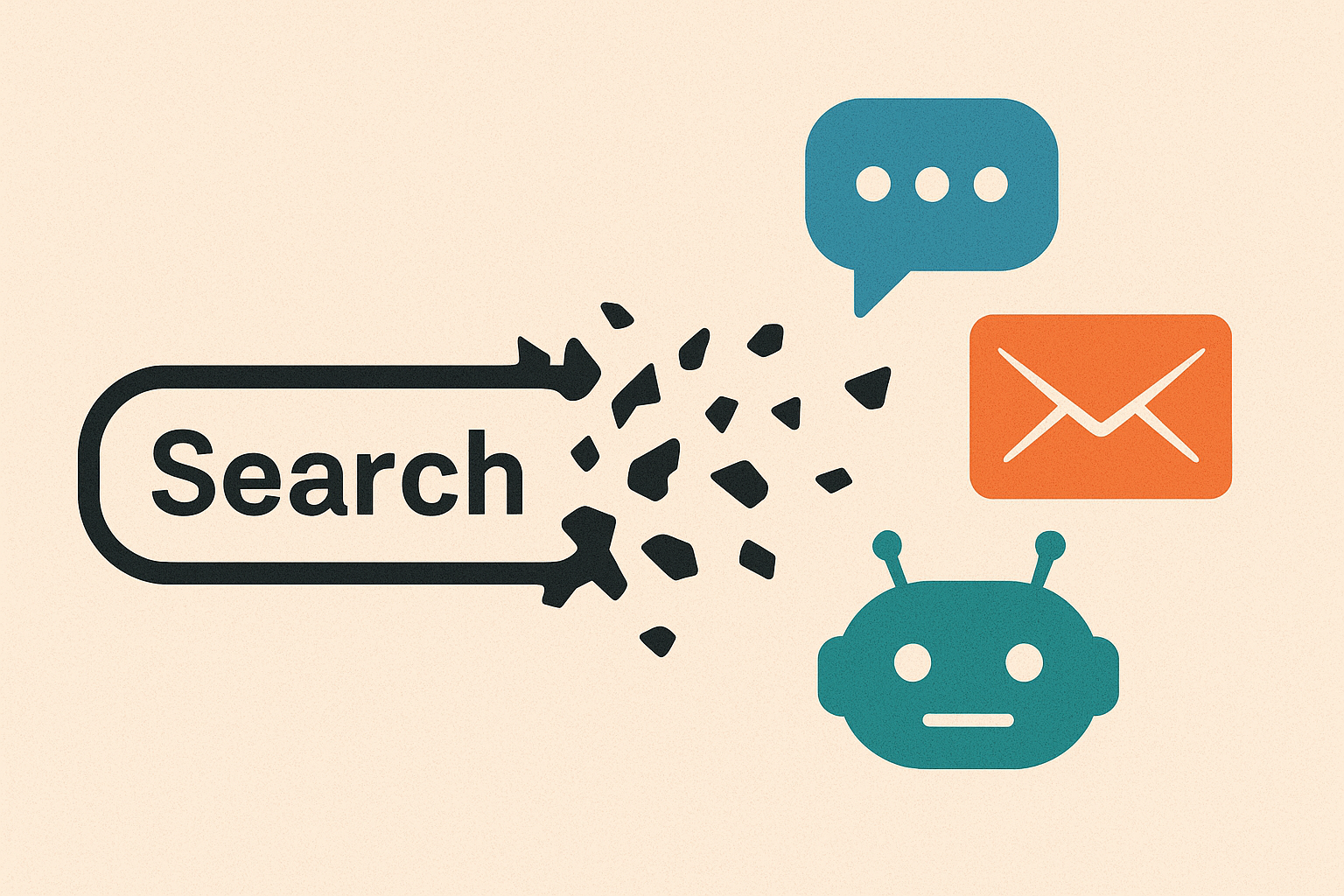What follows the decline of search traffic?

Try this on your phone: Type “What news is there for [any city]?” into Google. The result offers a glimpse into a future that’s already here — one that’s about to fundamentally reshape the internet: AI-generated answers. For publishers, this is bad news.
Many publishers rely heavily on Google for their business models. They depend on the traffic to sell ad space, and to attract people to their paid subscription offerings.
Google’s new AI Overviews (and similar services from other AI companies and specialized search engines like Perplexity or You.com) are — for now — far from perfect. They don’t align with our journalistic understanding of relevance and timeliness. Google struggles with large cities like Hamburg or Munich (probably due to too much news), and user habits are still shaped by traditional search behavior. But all of that is just a matter of time. From a user perspective, AI-generated answers are simply too convenient.
An analysis based on our Upscore benchmarks shows that, so far (from January 2024 to April 2025), there has been no visible impact. On average, regional news outlets still receive about 17 percent of their traffic from search (excluding Discover), and that number has remained stable. That’s no surprise — Google only rolled out AI Overviews in Germany in March. And other companies offering similar features haven’t gained much traction yet. Still, it’s safe to assume that publishers will lose the majority of their search traffic, just as they once lost most of their reach from Facebook.
Google claims it will continue sending traffic by including links to the sources of its AI answers. But that’s misleading. In reality, Google is peeking behind paywalls and making premium content freely accessible. Heise.de reports on U.S. publishers calling this practice “theft” — and they’re right. Die FAZ meint: “Google is saying goodbye to its search engine.”
Google Discover, at least for now, does not use AI-generated answers. It still links directly to content — especially from publishers. According to Upscore benchmarks, Discover accounted for 17 percent of regional publishers’ traffic in April 2025, up from 13 percent a year earlier. Discover optimization is the new SEO.
And what else? Offline is the new SEO. We need to go back out and meet people where they are. Talk to them in real life. Build trust directly. Newsroom meetups, live podcasts, events, “meet the editor” sessions, pop-up newsrooms, coffee chats with journalists — all of this takes time, money, and for many publishers, a new mindset. It requires building new teams that focus on these efforts. But the reward is worth it: reach and subscriptions based on trust, independent of the decisions of tech giants.
Joachim Dreykluft is Head of Data & AI Strategies bei Upscore

